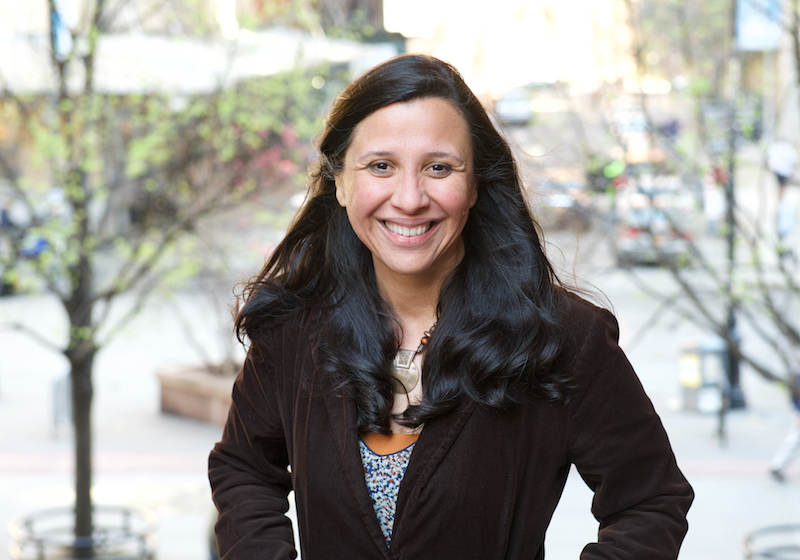
Sophie Maríñez, an Assistant Professor of French and Spanish in the Modern Language Department at Borough of Manhattan Community College (BMCC/CUNY), is one of six faculty scholars across CUNY to have been accepted as a 2016-2017 Faculty Fellow by the Center for Place, Culture, and Politics (CPCP) at the CUNY Graduate Center.
The fellowship provides release time for two three-credit courses over the 2016-2017 academic year, enabling Professor Maríñez to dedicate time to her research project, “The Dynamics Between Haiti and the Dominican Republic.”
The project focuses on solidarity between the two countries, Maríñez says. It also examines “negative perceptions of Haitians in the Dominican Republic, whose leaders adopted an ideology that sees Haitians through a racist lens, in order to serve a political agenda.”
Analyzing the impact of Ruling 168-13
Maríñez’s interest in Haitian-Dominican relations was set into motion by the highly denounced 2013 Ruling 168-13 of the Dominican Republic’s Constitutional Court.
This ruling establishes that Dominicans born of parents who migrated to the Dominican Republic as early as 1929, are no longer entitled to Dominican nationality.
In other words, Maríñez says, the ruling refers to the descendants of hundreds of thousands of Haitians who have migrated to the Dominican Republic in the last 100 years. “It is part of a long-standing history of anti-Haitian practices and ideologies, and I felt compelled to re-direct my research to investigate the sources of those ideologies.”
She is also interested in this issue because of its potential impact on BMCC’s diverse student body. “We have a very large population of Dominican and Haitian students, often in the same classroom,” she says.
Documenting goodwill in the midst of tension
Although a dominant perception of Haiti and the Dominican Republic is that they are in conflict, “both nations also share a complex history of military, political, and cultural cooperation,” Maríñez says. “In many regions, people from each country have actually lived peacefully together.”
To highlight this aspect of the relationship between the two countries, her research will involve locating narratives of solidarity between the people of the two countries through oral testimonies, literary works, and political history.
As a CPCP Faculty Fellow, she will also participate in a weekly seminar group at The Graduate Center, “Revolution and Consciousness.” These meetings will be crucial, Maríñez says, as she applies existing critical theory to her project.
Experiencing and addressing cultural difference
“I was born in France to a Dominican father and a French mother,” Maríñez says. “I grew up in the Dominican Republic and continued my education in New York, so I know something about cultural difference.”
Before joining the faculty at BMCC, Maríñez worked as a translator and journalist, and served as a diplomat of the Embassy of the Dominican Republic in Mexico City, bringing Dominican artists and writers to audiences throughout Mexico and developing exchange programs between the two countries. She expects to use her French and Spanish language skills in her research, as well as her contacts in different countries.
For more information on how to apply for a Faculty Fellowship with the Center for Place, Culture and Politics at The Graduate Center, CUNY, click HERE.
STORY HIGHLIGHTS
- Professor Sophie Marinez is one of six awardees, CUNY-wide, of 2016-2017 Faculty Fellowship at Center for Place, Culture and Politics at the CUNY Graduate Center
- Fellowship provides release time for two three-credit courses over the 2016-2017 academic year
- Marinez examines both positive and negative dynamics between Haiti and Dominican Republic

